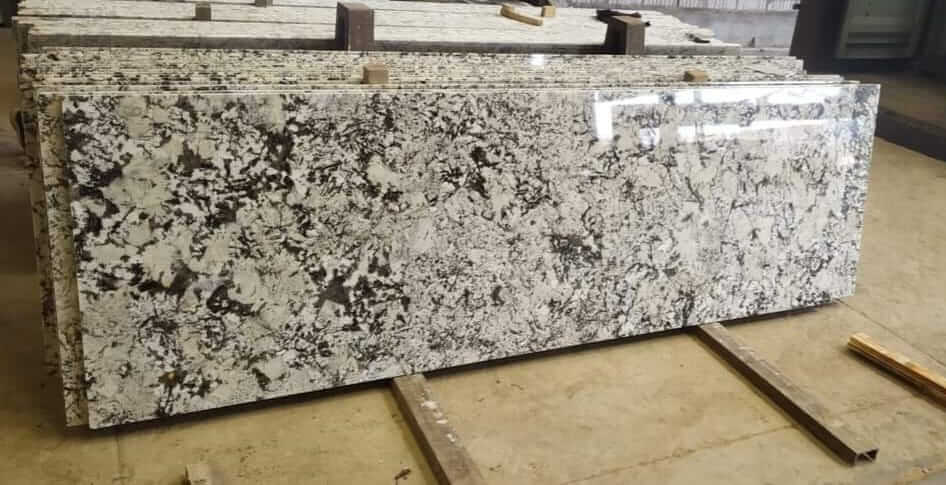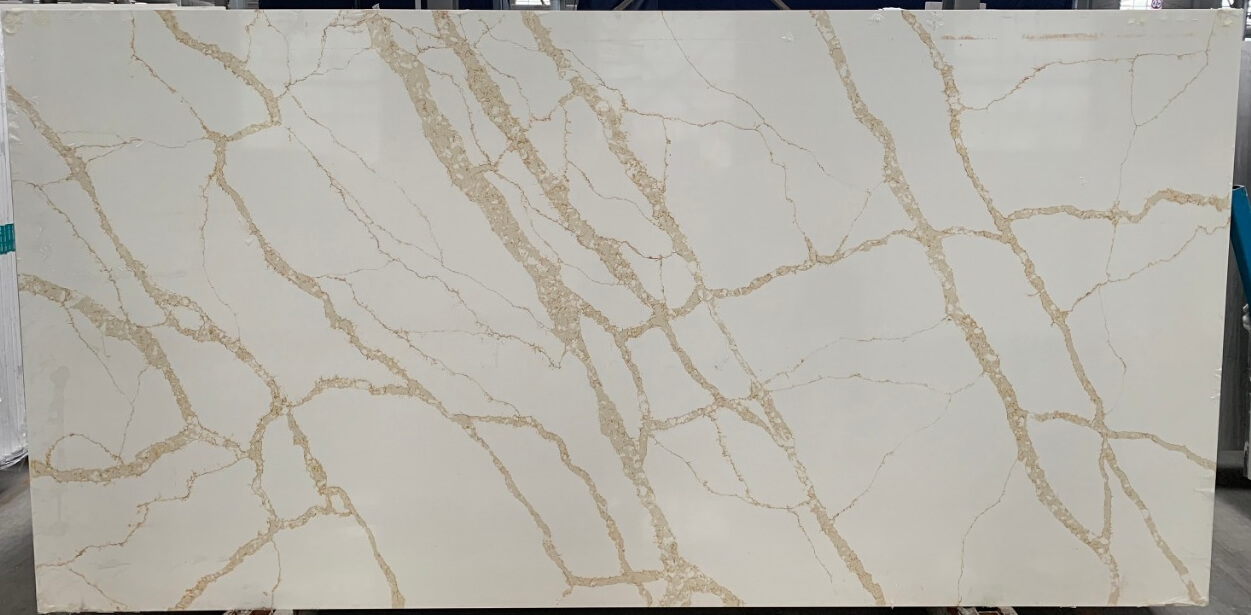Granite V/S Quartz: Which is Better for You?
Indian Granites and Quartz are two popular choices in stones for kitchen countertops, floorings etc. Amidst this, the two stones timelessly stay in limelight within contractors, designers, builders or home connoisseurs. But, this debate of granite v/s quartz for a particular project is never-ending. Whether it’s about furnishing a new home or renovating the office space, most of us are juggled in electing for a single option. But, if you know the applications and characteristics of both, you can be able to make an informed choice- after all, it’s a huge and one-time investment. Therefore, to break down the dilemma between Indian granites and Quartz surfaces, here is the blog to highlight its differences and properties.
Indian Granite Stones

Indian granites are one of the beautiful and versatile natural stones, which is a perfect blend of durability and aesthetics. It is widely popular in kitchen countertops, floorings, wall backsplashes and many more for residential and commercial uses. Moreover, they are heat and scratch resistant but are porous in nature. They are the preferred pick for homeowners and the reason is simple they are stain-resistant and need periodic maintenance. So, if you are looking for the finest and most attractive types of granites like Absolute Black, Galaxy Black and many more in India, we stand out from the rest. Have a look at our wide selection now!
Quartz Surfaces

Quartz is slightly different from other natural stones. When used in countertops or floorings, it is not a 100% natural stone but a man-made combination of resins and crushed quartz. This makes quartz surfaces non-porous, meaning it requires less maintenance overall. Moreover, they are extensively used in countertops and is available in a vivid range of styles, textures and patterns.
Comparison Between Indian Granites and Quartz Stones (Granites V/S Quartz)
Here are the seven categories to present Granite V/S Quartz :-
1. Appearance
In terms of appealing designs and aesthetics, quartz breaks the record. It comes in various colours, textures and styles but also allows customers to customize the design based on their personal choices. While granites offer a range of colour options and often becomes challenging to pick the right one to match the rest of the decor scheme.
2. Cost
Quartz is usually cheaper than granite. Generally, quartz surfaces cost from $50 to $100 per square cost, including installation. In contrast, granite prices range from $40 to $150 per square foot, including a cost of installation.
3. The Composition
Indian granites originate from naturally occurring granite rock, which is mined and cut into large manageable slabs for construction purposes. Whereas, quartz is engineered stone, in which over 92-94% consists of crushed quartz and other minerals and pigments are used for colouration with resins i.e. polyester and epoxy to bind it all together.
4. Wear and Tear
Quartz is an actually harder material than granite and therefore, it is more durable. Because of its non-porous nature, unlike granite, quartz is robust and is highly resistant to wear and tear.
5. Applications
Both are highly applicable to the interiors of spaces like kitchens and restrooms where hard surfaces are desired. They can be used for floorings, wall backsplashes, cladding, countertops etc but neither of them is used for outdoor applications. Granites are vulnerable to the elements of water in the restrooms due to their porous nature, while quartz surfaces can fade in sunlight.
6. Maintenance
Granite and quartz surfaces should be cleaned daily with soap and water or a mild household cleaner. But, be cautious as some acids can react with the surface. Just a single difference is that granites are resealed once in two years for longevity, which is not the case with quartz.
7. Environment-friendliness
Since granite is a natural stone, it produces fewer carbon emissions in extraction. Whereas, quartz is an engineered stone which is why produces more carbon emissions.
In the end, we can summarize the differences in below mentioned table.
On the Basis of Comparison | Granite | Quartz |
Porous | Yes | No |
Durability | Durable | More Durable than Granite |
Stainable | Yes | No |
Heat-resistant | Yes | Yes |
Maintenance | Requires low-maintenance but reseal once every two years. Light- coloured granites may require additional maintenance. | Quartz requires low-maintenance and no need of reseal. |
Damaged by Cleaning liquids | Yes may get damaged | No |
Environment-friendliness | Yes | No |
Cost | $40 to $150 | $50 to $100 |
Conclusion
All in all, Indian granites are for those who prefer natural materials, timeless beauty and uniqueness for their space. While quartz is for those who love more delicate and vibrant material for their space. Well, if you are still not able to make up your mind, consult immediately the best granite suppliers and manufacturers in India, Fortuna Marmo granite for expert assistance. We can help you in making the right choice based on your needs, lifestyle and aesthetics.
